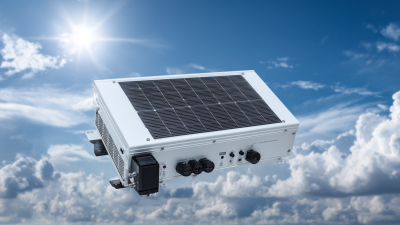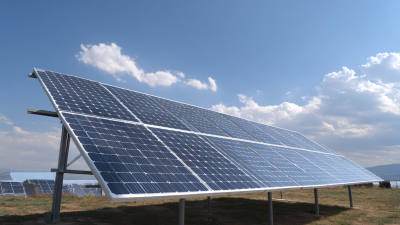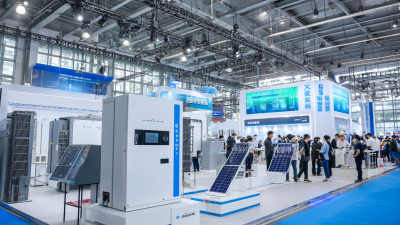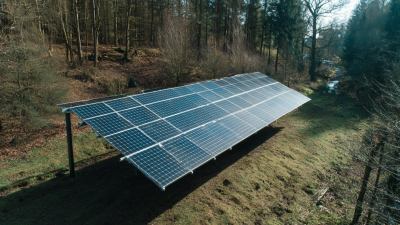ALL PRODUCTS
- Solar Panel
- Hybrid Inverter
- Lithium Battery
GSB SOLAR LITHIUM BATTERIES
- Gel Battery
- Solar Street Lights
- Pump Inverter
As the world increasingly turns to renewable energy sources, understanding the mechanisms behind their functionality becomes essential for homeowners looking to embrace sustainable living. One critical component in this transition is the solar panel inverter, a device that converts the direct current (DC) generated by solar panels into alternating current (AC), which is necessary for household appliances. According to a report by the International Renewable Energy Agency (IRENA), the global solar power capacity reached 711 GW in 2018, with projections indicating a significant growth trajectory, further underscoring the importance of efficient inverters. By playing a pivotal role in maximizing energy output and ensuring household compatibility, solar panel inverters not only enhance the utility of solar energy systems but also contribute to cost savings, with a potential 20% reduction in energy bills for consumers. Understanding this technology is not just beneficial; it is essential for maximizing the potential of renewable energy in modern homes.
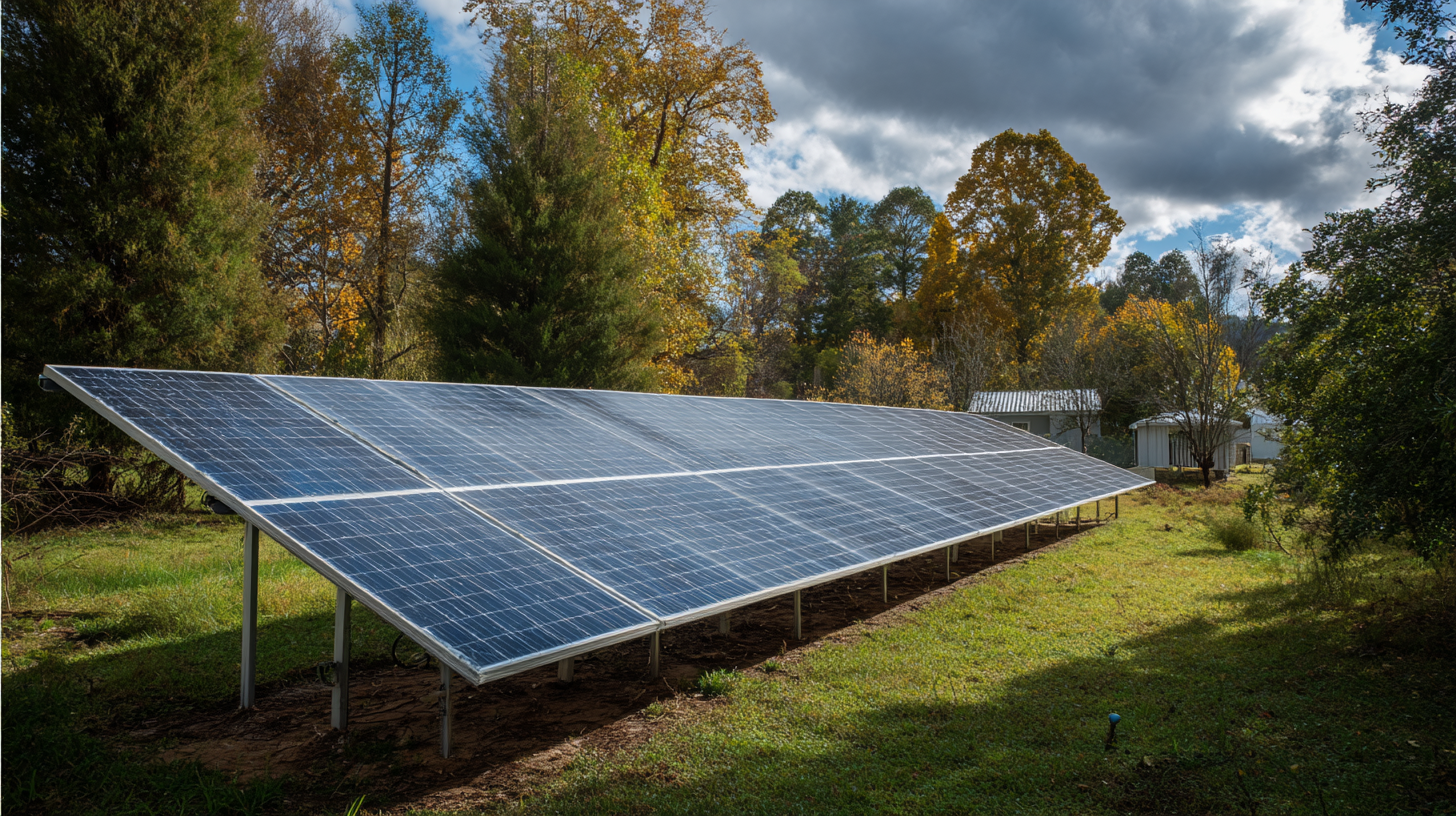
Solar panel inverters are crucial components in any renewable energy system, as they play a vital role in converting the direct current (DC) generated by solar panels into alternating current (AC) that can be used in homes. According to the U.S. Department of Energy, inverters account for about 13% of the total system cost of a residential solar installation. As such, choosing the right inverter can significantly affect the overall efficiency and performance of a solar energy system.
In addition to efficiency, inverters also provide important monitoring capabilities, allowing homeowners to track their energy production and consumption in real-time. A report by the National Renewable Energy Laboratory indicates that advanced inverters can improve energy management and reliability for the growing number of residential solar installations. By integrating smart technology, such as grid-support capabilities, these devices enhance the resilience of home energy systems, ensuring that homes can optimize their use of renewable energy while minimizing reliance on traditional power sources. Investing in a high-quality inverter is essential for harnessing the full potential of solar energy.
Inverters play a crucial role in converting solar energy into usable electricity for homeowners. They act as the intermediary between solar panels and the electrical system of a home, ensuring that the energy harvested from the sun is transformed into a form that can power household appliances and devices. With the evolution of the photovoltaic (PV) inverter market, new products are emerging that enhance efficiency and control for homeowners. Recent advancements indicate that some inverters now come equipped with software that allows users to unlock larger systems, thus optimizing the amount of electricity they can utilize.
**Tips:** When considering solar panel installation, it's important to consult with experts about the inverter options available. Choosing an inverter not only impacts energy conversion but can also influence future power expansion. Additionally, be sure to inquire about features related to cybersecurity, as protecting your renewable energy system is becoming increasingly critical in today’s digital landscape.
As the solar market grows, homeowners should stay informed on the latest products and technologies. For instance, certain inverters now offer expanded features that cater specifically to residential needs. Ensuring you have the right inverter can maximize your energy efficiency and provide peace of mind with improved system security.
When selecting the right solar panel inverter for your home, it's essential to understand the various types available and how they impact energy efficiency. Solar inverters primarily fall into three categories: string inverters, micro inverters, and power optimizers.
String inverters are the most common choice for residential settings, as they are cost-effective and easy to install, but they can struggle with shading issues. Micro inverters, on the other hand, optimize the energy output of each panel individually, making them ideal for roofs with varying angles or shading. Power optimizers sit between these two, enhancing the performance of string inverters while maintaining a lower cost than micro inverters.
When considering an inverter, efficiency ratings are critical. The best solar inverters can achieve efficiency levels of up to 98%. For optimal performance, it's crucial to pair your inverter with the appropriate solar battery system, especially if you're in an area prone to outages.
Tips:
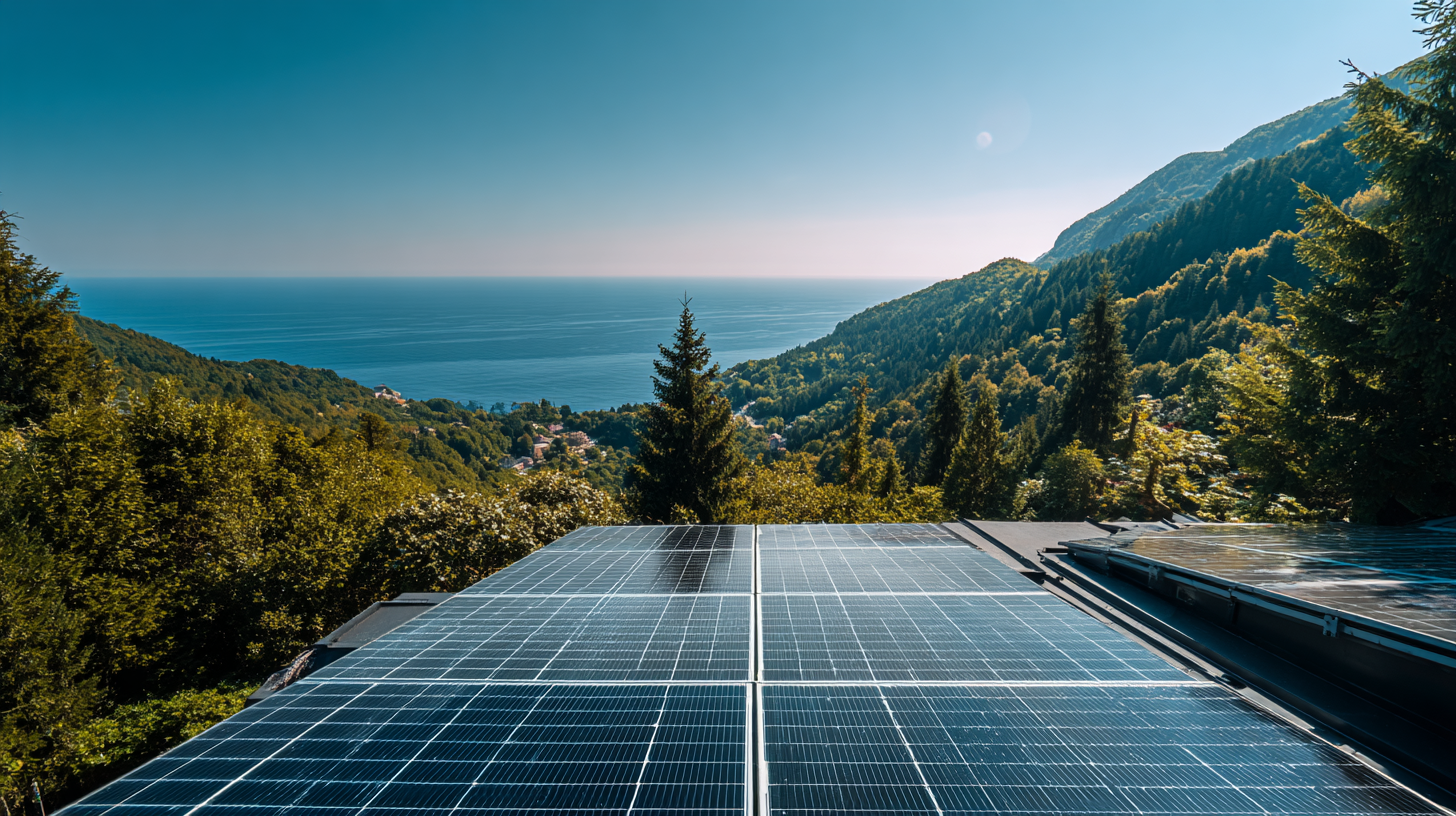 To maximize energy efficiency when utilizing solar panel inverters, it's essential to understand the key factors that contribute to their optimal performance. First, regular maintenance plays a crucial role in ensuring that inverters operate at peak capacity. This includes cleaning the inverter and its surrounding area to prevent dust and debris from obstructing airflow, as well as checking the wiring and connections for any sign of wear or damage.
To maximize energy efficiency when utilizing solar panel inverters, it's essential to understand the key factors that contribute to their optimal performance. First, regular maintenance plays a crucial role in ensuring that inverters operate at peak capacity. This includes cleaning the inverter and its surrounding area to prevent dust and debris from obstructing airflow, as well as checking the wiring and connections for any sign of wear or damage.
Another important tip for optimizing solar inverter performance is monitoring the system's output regularly. Many modern inverters come with digital displays or smartphone apps that allow homeowners to track energy production in real-time. By analyzing this data, you can identify trends and adjust energy usage during peak production hours, ensuring that you’re maximizing the energy captured by your solar panels. Additionally, understanding the effects of shading and weather patterns can help you position your panels and adjust your consumption habits for better efficiency. By implementing these strategies, you can enhance the efficiency of your solar energy system significantly.
Solar panel inverters are crucial in converting the direct current generated by solar panels into alternating current, which is suitable for home use. However, several common issues can arise with these inverters, leading to decreased efficiency or complete system failure. These problems can include overheating, connection issues, or software glitches. Effective troubleshooting often starts with regular monitoring of inverter performance and ensuring proper ventilation to prevent overheating. If a fault is detected, resetting the inverter or checking the connections can often resolve minor issues.
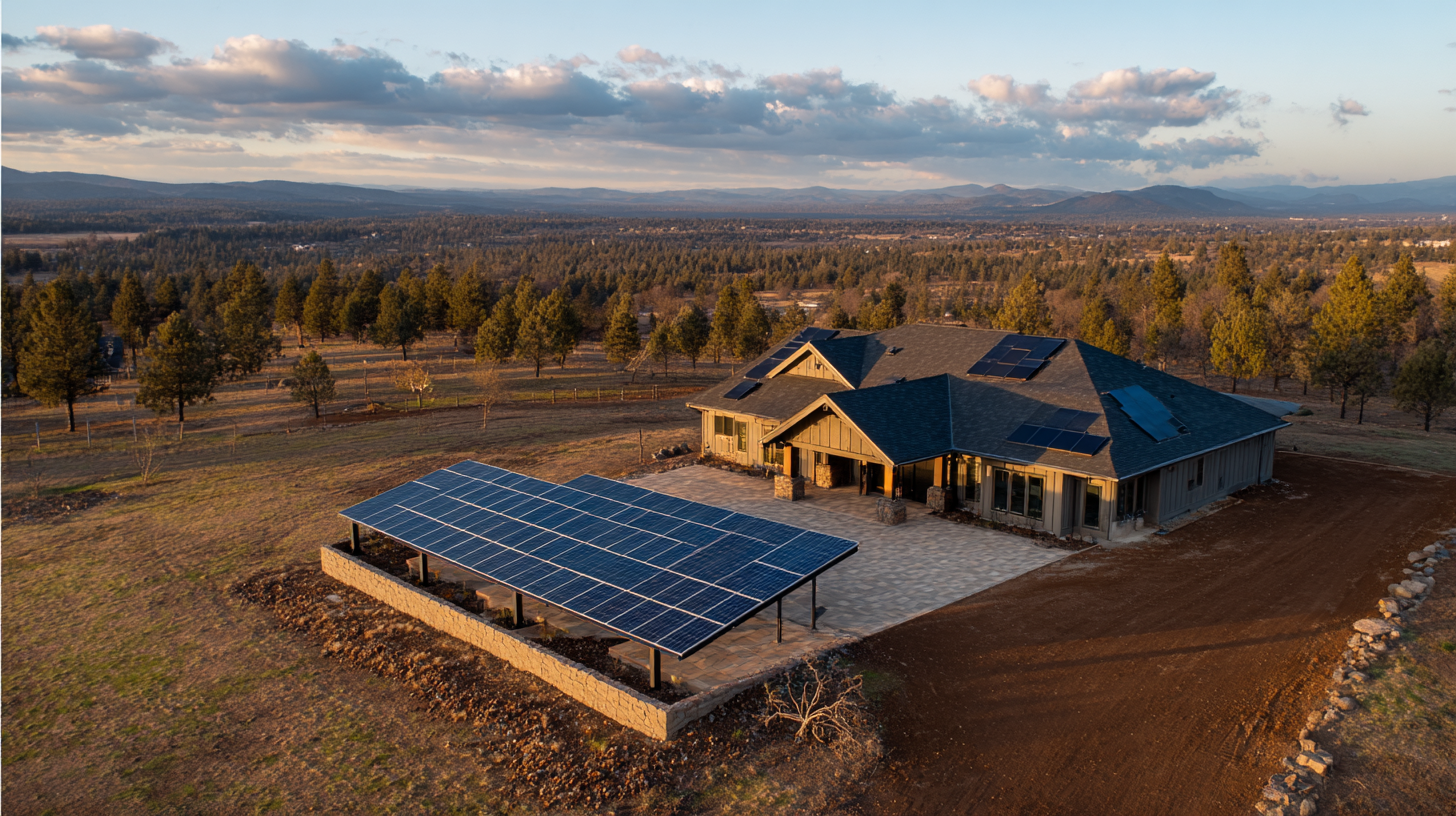
In addition, recent developments such as new smart inverter regulations in Australia aim to enhance grid integration capabilities, addressing problems faced by solar power systems. From ensuring that voltage levels remain stable during high photovoltaic penetration to facilitating easier communication between the inverter and utility networks, these changes can significantly help both homeowners and grid operators. As the demand for solar energy continues to grow, it becomes increasingly important to address these common inverter challenges to maximize efficiency and reliability.

